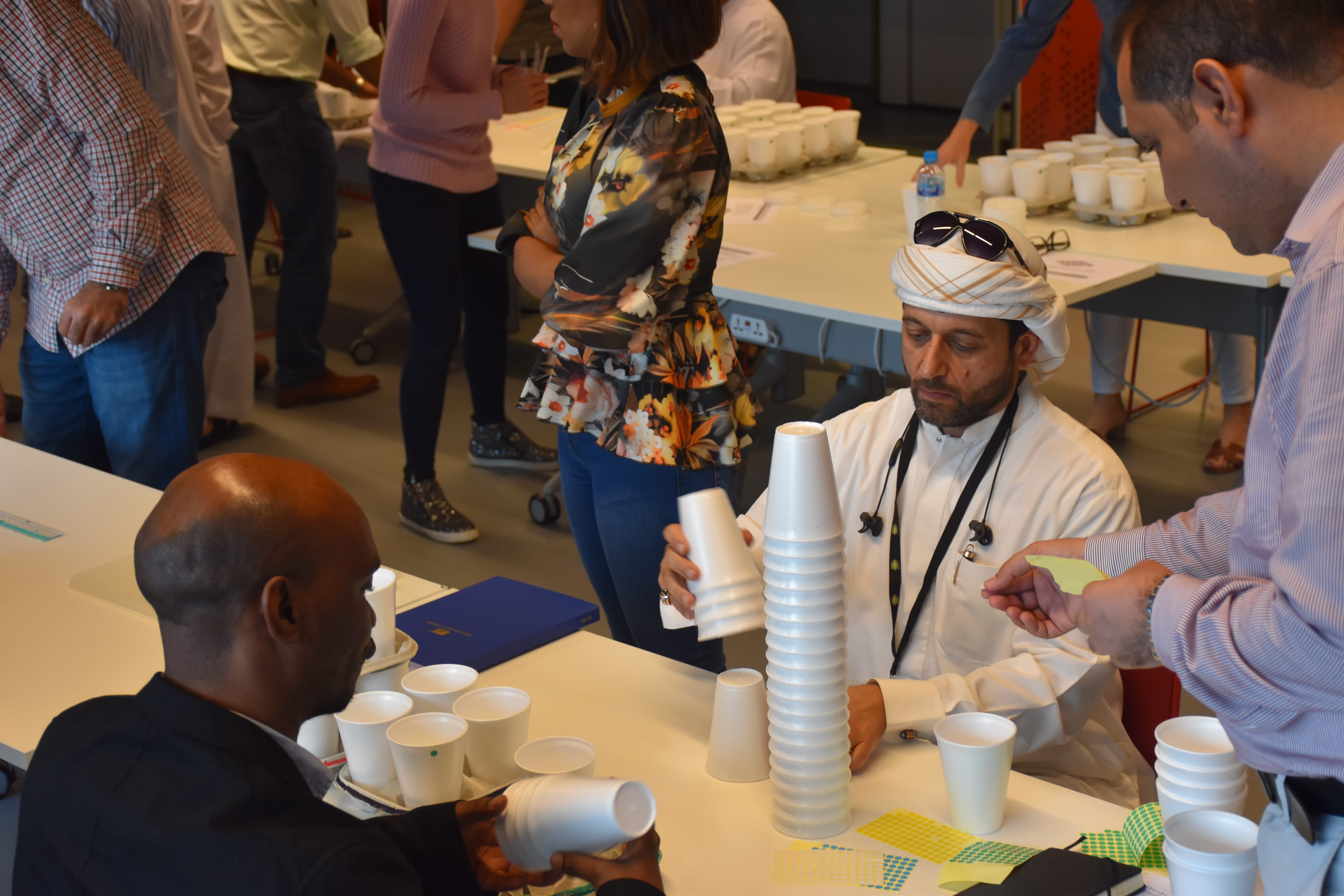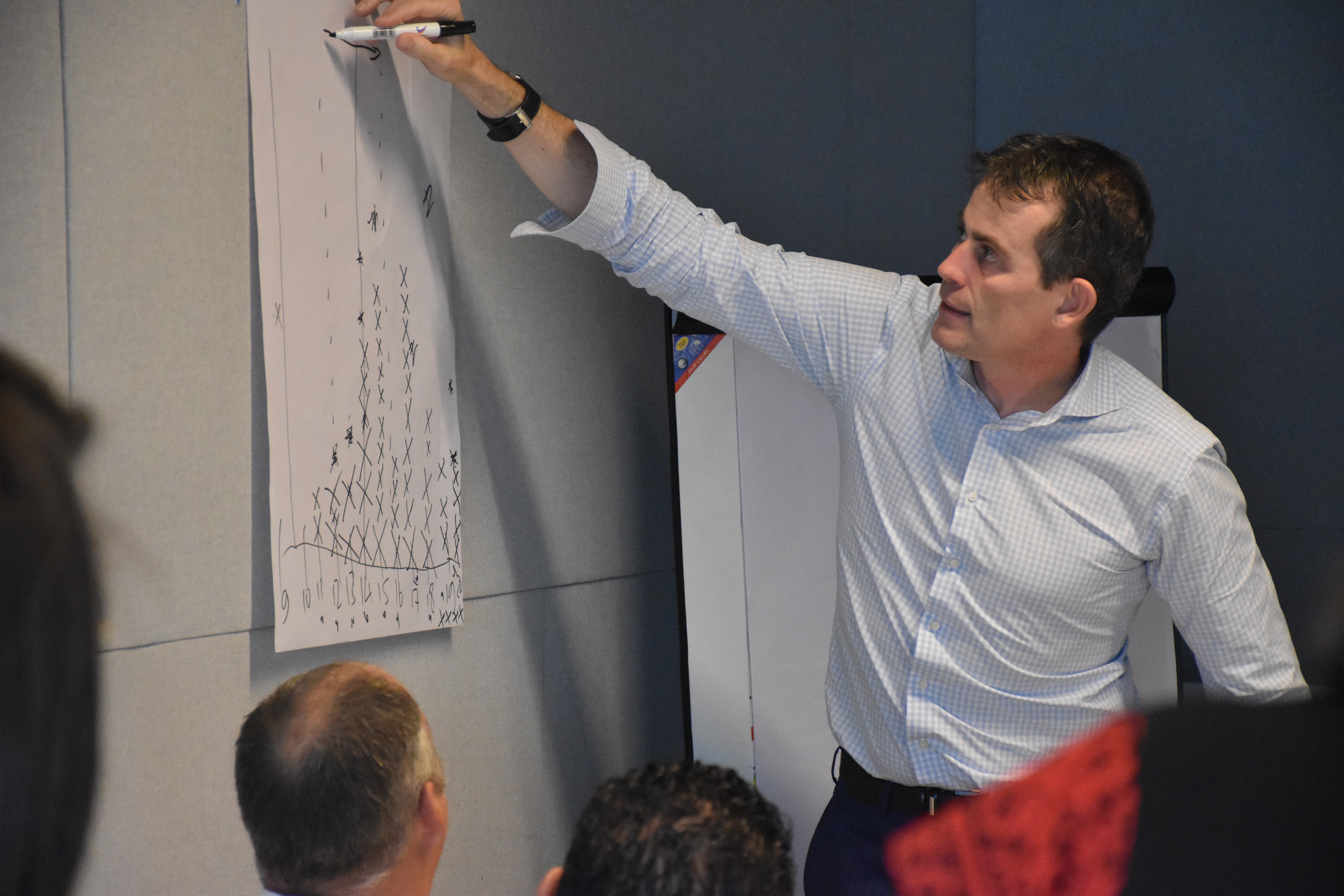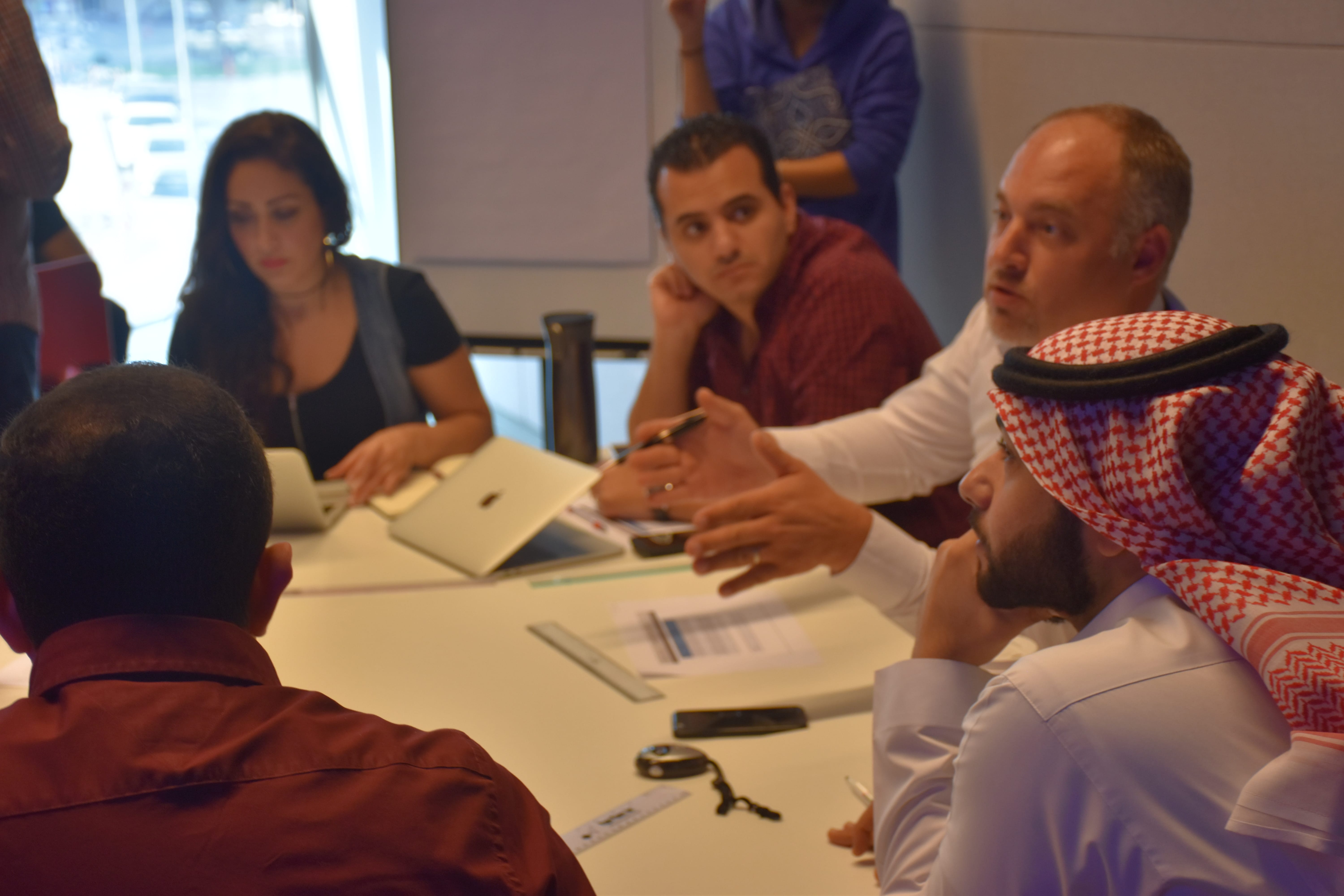1 professor. 25 years of experience. Lots of paper cups.
Welcome to a Global Operations EMBA class at Hult. Led by Dr. Nick Wake, a professor with 25 years of experience in Operations Management and Operations Strategy. This class brings abstract business concepts to life through simulations, practical applications, and yes, even polystyrene cups.
To prepare for class, EMBA students read about the core Operations concepts in their own time. Once in class, Nick presents, discusses, and tests understanding of the concepts. Once he’s sure everyone is clear, he then leads the students to the big reveal of the day: a lean improvement simulation set up in a separate classroom.


The simulation has students work in a factory setting with polystyrene cups—which isn’t as simple as it sounds. The class is broken up into factory managers, workers, and operations consultants, and customers. During the simulation, students measure and record key performance data such as quality, speed, and flexibility, using this data to make the factory work better. By doing this they put into practice concepts, such as business process analysis, service management, lean synchronization, quality management, and more.
During the simulation, students measure and record key performance data such as quality, speed, and flexibility, using this data to make the factory work better.
At key points, Nick stops the simulation and explains how these concepts are applied in real businesses and the impact of process improvement on operations. This is based on his own experiences in the workforce. Nick is in a good position to be giving advice: he worked with British Steel for seven years in their primary steel making, processing, and international distribution operations before working in IT consulting for five years. To complement his professional work, he undertakes research into performance management and pedagogic practice.


“Having industry experience informs my teaching since I understand the problems of the real world,” Nick says. “It means that I teach things which I know matter and am able to relate to the issues that students bring to the classroom.”
At the end of the simulation, Nick summarizes the key concepts. He then asks groups to do an assignment where they apply their learning directly to their own job—a mini-consultancy with the aim of improving an internal process for their company. It’s because of this practical approach, the weekends on campus equip professionals with knowledge that allows them to bring immediate value into their workplace – regardless of their industry.
Practical classes like Nick’s Global Operations class mean that many students can immediately apply what they’ve learnt to their current roles, students like Khalil Fakhouri. After the class, Khalil plans to present his learnings to his manager and the supply chain leaders at 3M:
“I can apply the concepts from the assignment directly to my work and find solutions for key issues in my division, which can also be applied across the divisions in a multinational company. It’s a great learning opportunity for me, and my employer values the benefits the EMBA is bringing to them too” Khalil says.For Nicolai Bro Winkel, Partner at Ostergaard & Co., the impact is already apparent: “The post-course assignment for global operations gave me an opportunity to review the operations process for my company’s most important activities, and come up with a solution to optimize it by using the tools we learned during the course. We have seen significant improvements across areas of performance as a result of the optimization.”


“The whole EMBA course is designed so that it’s practical and we can immediately apply it to work.”
Executive MBA students across Hult’s global campuses take part in simulations and have the opportunity to put academic concepts into real-world practice. At our London campus, students visit and assess 5-star hotels as part of their international marketing course. Professor David James at our Shanghai campus leads a team exercise where students take control of a start-up company and compete against other teams in a simulation that runs over three days. The Dubai campus runs another simulation with paper planes, that focuses on change management. From paper cups to start-up simulations, the EMBA classroom is always an engaging, hands-on, and rewarding place to be.
“The whole EMBA course is designed so that it’s practical and we can immediately apply it to work,” Ahmad, an architect in the EMBA program, says. “You apply, reflect and learn. And the opportunity to use your learnings is huge.”
Hult offers a range of highly skills-focused and employability-driven business school programs including a range of MBA options and a comprehensive one year Masters in International Business. To find out more, take a look at our blog Hult scores in top 20 in The Economist’s Which MBA? ranking for 2019. Download a brochure or get in touch today to find out how Hult can help you to learn about the business world, the future, and yourself.

